http://weelookang.blogspot.sg/2013/04/invitation-to-present-at-w6-ict.html
Briefing Document: Open Source Physics in Singaporean Education
Date: October 26, 2023
Subject: Review of "20130719 S4: Open-source physics and its applications in Education W6 ICT Committee Professional Development Seminar 2013"
Overview:
This document summarizes a professional development seminar focused on the use of open-source physics simulations in Singaporean education. The seminar, presented by Wee L.K., highlights the availability and adaptability of these simulations for teaching physics at various educational levels (Primary, Secondary, and Junior College/A-Levels). The core idea is that these simulations, being open-source, can be customized by teachers for more effective and targeted instruction, fostering student-centered inquiry.
Key Themes and Ideas:
- Open Source Physics (OSP) and its Adaptability:
- The seminar emphasizes the use of computer models created by the Open Source Physics community. These models are mathematical representations of real-world physics phenomena.
- A crucial aspect is that the source code for these models is available and modifiable. This enables educators to "customize (Wee & Mak, 2009) these models for more targeted productive (Wee, 2012) activities for their classroom teaching."
- The models are licensed under Creative Commons Attribution or similar licenses like GNU General Public License (GPL), permitting redistribution and adaptation. This promotes the sharing of educational resources and the collective improvement of teaching materials.
- Remixing and Customization:
- The presenter shares over 75 computer models that have been "remixed to suit the Primary, Secondary and A-level Physics syllabus." This highlights the practical application of open source, going beyond simply using existing materials.
- The process of remixing involves adapting existing simulations to fit specific pedagogical needs and curriculum requirements.
- Examples include a pendulum simulation remixed for primary school students and a stop-watch model enhanced for timing games in class.
- Focus on Inquiry-Based Learning:
- The use of the simulations is intended to support "active student-centered inquiry." Students are not passively receiving information, but engaging with models to investigate physical phenomena.
- Many lesson examples mentioned involve students using simulations in computer labs, either individually or in groups, to explore concepts like wave behavior (Ripple Tank Model), electromagnetism (Falling Magnet through Solenoid Model), and collisions (Collision Carts Model).
- Lesson designs incorporate guided discovery worksheets and promote sense-making. This implies a shift from traditional didactic approaches to constructivist learning where knowledge is built through experience.
- Integration of Technology in Physics Education:
- The seminar strongly promotes the integration of Information and Communication Technology (ICT) in teaching physics. This involves using computer models, virtual labs and other digital tools to enhance learning.
- The listed examples cover a wide range of topics from mechanics to thermodynamics to electromagnetism and waves demonstrating the breadth of topics that can be supported by simulations.
- The document explicitly states the objective of “innovative use of ICT in education”.
- Teacher as a Designer of Learning Experiences:
- The event promotes teachers as "reflective practitioners" who can use research and best practices to inform their teaching and curriculum design.
- By presenting teachers with the tools to modify and adapt the models, they are placed in the role of designers of learning experiences that best suit their students' needs.
- The seminar aims to "provide a structured platform for practitioners to share their insights and findings," reinforcing the idea of a collaborative approach to educational development.
- Wide Range of Models and Resources:
- The document showcases a wide variety of simulations and learning resources, with links to Dropbox downloads and blog posts that contain specific models.
- Examples listed include simulations for topics like:
- Pendulum motion
- Stopwatch usage
- Thermodynamics (Zeroth Law)
- Brownian motion
- Wave phenomena (ripple tank, progressive stationary waves)
- Electromagnetism (falling magnet through solenoid)
- Collisions (collision carts)
- Circular and gravitational motion
- Lenses
- Electrical motors
- Energy concepts (roller coaster)
- Many others in the long list of examples provided
- This broad range demonstrates the potential of open-source physics for diverse applications in education.
- EduLab Projects and Scaling Up:
- The document mentions several "eduLab" projects using these simulations in various schools (e.g., Yishun JC, Innova JC, AJC, RVHS, SRJC, IJC). This indicates an active effort to implement and study the effectiveness of the open-source approach in different contexts.
- The projects are being scaled up to more institutions, suggesting a growing adoption and impact of this teaching method.
- Focus on Different Educational Levels:
- The document explicitly shows examples and simulations designed for Primary, Secondary, and JC/CI levels, showcasing the adaptability of this method across different student needs and stages of education.
- The content also includes different streams of education like Standard Level, Express/Special and H1/H2/H3 demonstrating it’s broad applicability.
- Emphasis on Collaboration:
- The lesson examples often show students working in groups to explore various aspects of the simulation or model. The design of many lessons emphasizes that students "collaborate in groups and investigate various aspects through different activities".
- There is also the idea of teachers collaboratively learning and sharing resources, building a community.
Quotes from Source:
- "educators can customize (Wee & Mak, 2009) these models for more targeted productive (Wee, 2012) activities for their classroom teaching and redistribute them to benefit all humankind."
- "active student-centered inquiry" (used repeatedly throughout the lesson examples).
- "Develop reflective practitioners who are informed by research" (one of the objectives of the event)
- "Provide a structured platform for practitioners to share their insights and findings" (another of the objectives)
Conclusion:
The seminar highlights the potential of open-source physics simulations to transform physics education in Singapore. By providing adaptable, customizable resources, it empowers teachers to design engaging, student-centered learning experiences that foster inquiry and deepen understanding of physics concepts. The document also showcases a collaborative effort to scale up these strategies across different educational institutions. The core principle of sharing and remixing openly available content provides a basis for continuous improvement and innovation in physics pedagogy. This seems to be a well-established and growing area of innovation in physics education in Singapore.
S4: Open-source physics and its applications in Education W6 ICT Committee Professional Development Seminar 2013
thanks to Lee Yong for the invitation.
Time: 1620-1650
updated 07feb 2015 emails deleted
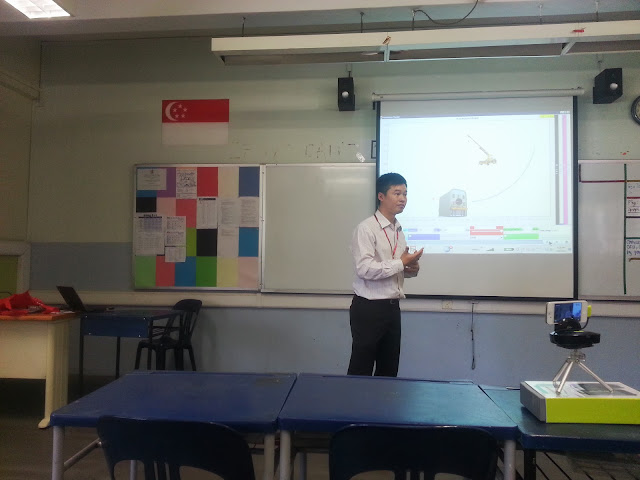 |
| Wee L.K. (2013, 19 July) West 6 Cluster ICT Committee Professional Development Seminar 2013 – “Professional Development for Teachers by Teachers” S4: Open-source physics and its applications in Education, Jurong Secondary School, Singapore notice http://www.swivl.com/int-resellers/ Singapore, Malaysia, Indonesia VM Education Pte Ltd |
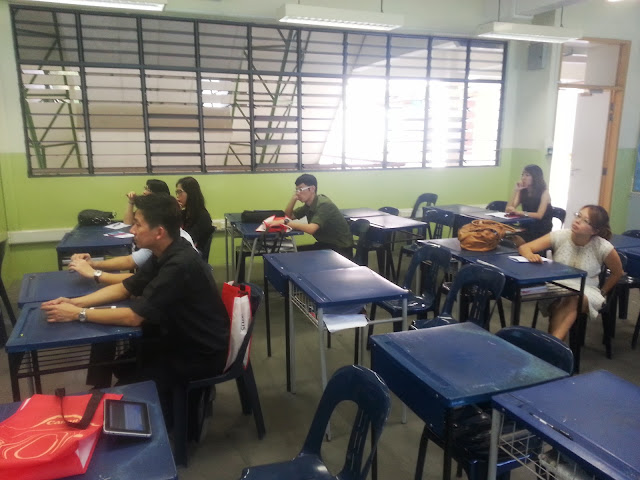 |
| Wee L.K. (2013, 19 July) West 6 Cluster ICT Committee Professional Development Seminar 2013 – “Professional Development for Teachers by Teachers” S4: Open-source physics and its applications in Education, Jurong Secondary School, Singapore |
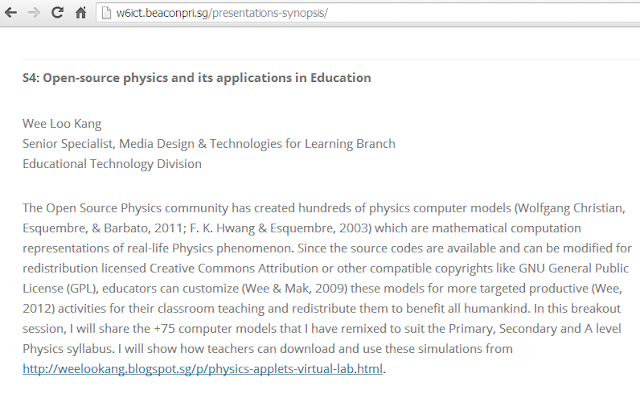 |
| Wee L.K. (2013, 19 July) West 6 Cluster ICT Committee Professional Development Seminar 2013 – “Professional Development for Teachers by Teachers” S4: Open-source physics and its applications in Education, Jurong Secondary School, Singapore |
http://ictconnection.moe.edu.sg/ict-in-action also housed some of the tried lessons
The objectives of the event are:
- Develop reflective practitioners who are informed by research
- Provide a structured platform for practitioners to share their insights and findings
- Create opportunities for innovative use of ICT in education
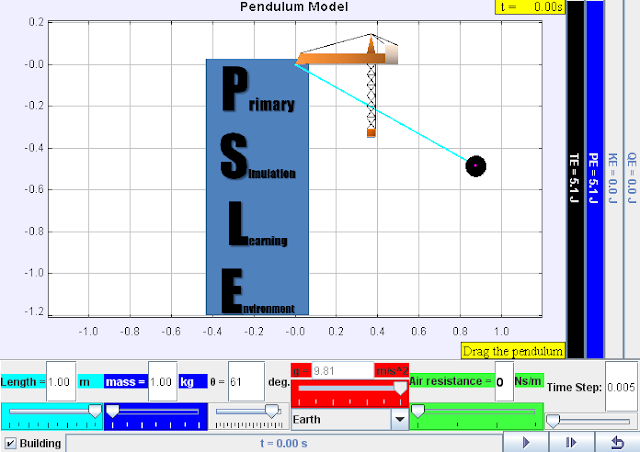 |
| http://weelookang.blogspot.com/2012/02/primary-school-remix-for-pendulum.html Primary School remix for Pendulum by This email address is being protected from spambots. You need JavaScript enabled to view it. https://dl.dropbox.com/u/44365627/lookangEJSworkspace/export/ejs_Pendulumweemat.jar https://sites.google.com/site/perfectodemolito/simulation Author: Wolfgang Christian and F. Esquembre http://www.compadre.org/osp/items/detail.cfm?ID=7567 Author: lookang (remix version) http://www.phy.ntnu.edu.tw/ntnujava/index.php?topic=818.0 Author: lookang and This email address is being protected from spambots. You need JavaScript enabled to view it. (this primary school version) |
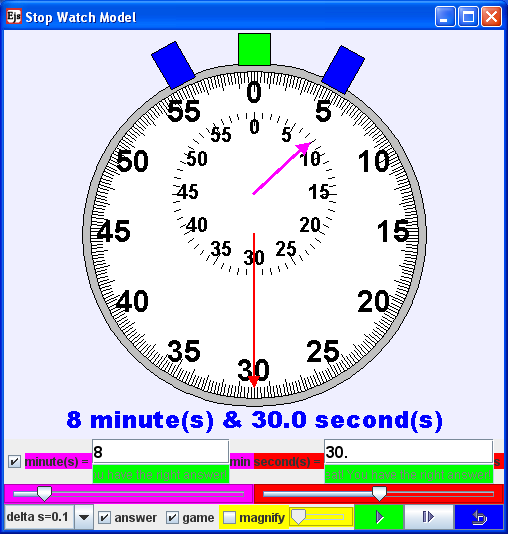 |
| Ejs Open Source Stop Watch Model Java Applet with enhanced integer values for game and minute/second hands http://weelookang.blogspot.sg/2011/08/ejs-open-source-stop-watch-model.html https://dl.dropbox.com/u/44365627/lookangEJSworkspace/export/ejs_users_sgeducation_lookang_Stopwatchmagnifywee.jar author: dhasthagheer, added on by Fu-Kwun Hwang, and now slightly remixed by lookang |
 |
| The Zeroth Law of Thermodynamics by Energy2D :Author: Charles Xie. If A and B are in thermal equilibrium with C, then A and B will be in thermal equilibrium with each other if they are brought into contact. Notice thermal equilibrium occurs when there is no net heat flow and TA = 13.4 oC = TB = TC http://weelookang.blogspot.sg/2012/09/the-zeroth-law-of-thermodynamics.html http://energy.concord.org/energy2d/zeroth.html Author of Energy 2D: Charles Xie Author of this model The Zeroth Law of Thermodynamics: Charles Xie |
 |
| picture of a 19 April 2012 version with 1 to 20 possible (this case is only 3) large particles as the request by Jake the Frodo on Today 19 April 2012 at 02:53:12 amhttp://www.phy.ntnu.edu.tw/ntnujava/index.php?topic=1484.msg9150#msg9150 http://weelookang.blogspot.sg/2010/06/ejs-open-source-brownian-motion-gas.html https://dl.dropbox.com/u/44365627/lookangEJSworkspace/export/ejs_brownianmotionwee.jar author: paco, fu-kwun hwang and lookang |
|
| Virtual Laboratory of Direct Current Electrical Motor Model Students investigate the relationship between the variables collaboratively in groups of 2. A co-created virtual lab learning environment was designed with guided discovery worksheets to support the process of sense-making of the physics of Direct Current Electrical Motor. Actual lesson learning environment (java applet) can... Subject: Physics, Science Level: Upper Secondary, JC/CI Stream: Standard Level, Express/ Special, N(A), H1/ H2, H3 |
144 |
| Computer Supported Learning in Circular Motion Concept Mapping and Simulations Computer Supported Learning in Circular Motion Concept Mapping and Simulations. These lessons are under the Computer Supported Collaborative Learning ProPel-T or eduLab initiative. Through a series of student-centered activities focusing on the Concept Mapping Pedagogy, students make their understanding visible through the construction of their concept... Subject: Physics Level: Upper Secondary, JC/CI Stream: Express/ Special, H1/ H2, H3 |
31 |
| Computer Supported Learning in Gravitational Motion Concept Mapping and Simulations Computer Supported Learning in Gravitational Motion Concept Mapping and Simulations. These lessons are under the Computer Supported Collaborative Learning ProPel-T or eduLab initiative. Through a series of student-centered activities focusing on the Concept Mapping Pedagogy, students make their understanding visible through the construction of their concept maps. Subject: Physics Level: Upper Secondary, JC/CI Stream: H1/ H2, H3 |
41 |
| Virtual Laboratory of Kepler's Third Law Solar System Model Students investigate the relationship between the variables collaboratively in groups of 2. A co-created virtual lab learning environment was designed with guided discovery worksheets (tutorial) to support the process of sense-making of the physics of Kepler's Third Law Solar System Model. Actual lesson learning environment (java... Subject: Geography, Physics, Science Level: Upper Secondary, JC/CI Stream: Express/ Special, H1/ H2, H3 |
48 |
| Lesson Example | Hits |
|---|---|
| Virtual Laboratory of Geostationary Satellite around Earth Model Students investigate the relationship between the variables collaboratively in groups of 2. A co-created virtual lab learning environment was designed with guided discovery worksheets (tutorial) to support the process of sense-making of the physics of Geostationary Satellite around Earth Model. Actual lesson learning environment (java applet)... Subject: Physics, Science Level: JC/CI Stream: H1/ H2, H3 |
20 |
| Virtual Laboratory Gravitational Field & Potential of Earth and Moon Virtual Laboratory Gravitational Field & Potential of Earth and Moon Model Students investigate the relationship between the variables collaboratively in groups of 2. A co-created virtual lab learning environment was designed with guided discovery worksheets (tutorial) to support the process of sense-making of the physics of... Subject: Physics, Science Level: JC/CI Stream: H1/ H2, H3 |
19 |
| Virtual Laboratory Gravitational Field & Potential of 2 Mass Model Students investigate the relationship between the variables collaboratively in groups of 2. A co-created virtual lab learning environment was designed with guided discovery worksheets (tutorial) to support the process of sense-making of the physics of Gravitational Field & Potential of 2 Mass Model. Actual lesson learning... Subject: Physics, Science Level: JC/CI Stream: H1/ H2, H3 |
22 |
| Virtual Laboratory and Real Equipment Vernier Caliper and Micrometer Virtual Laboratory and Real Equipment Vernier Caliper and Micrometer. A lesson ( 90 minutes ) designed to blend or integrate the following: 1 Real equipment, (learning about the real world) 2 A computer model (transforming learning with technology) 3 Google form (learning feedback immediately during the lesson) Subject: Physics, Science Level: Lower Secondary, Upper Secondary Stream: Standard Level, Foundation Level, Express/ Special, N(A), N(T) |
174 |
| Energy Comes Alive with Customized Roller Coaster Simulation! In this lesson, the students are using a customized roller coaster simulation to learn about energy concept. They will be involved in a series of inquiry-based activities (e.g., investigating the energy change and making an evidence-based conclusion). To further support their learning, Google Forms and YouTube videos are also used. Subject: Science Level: Upper Primary Stream: Standard Level |
84 |
| Virtual Laboratory Thin Converging Lenses Model Virtual Laboratory Thin Converging Lenses Model classroom computer lab lesson was designed to allow 1. active student-centered inquiry on the Thin Converging Lenses computer model : 2. collaborative groups and investigate various aspects through different activities. They can then and come together to discuss and... Subject: Physics, Science Level: Upper Secondary Stream: Standard Level, Foundation Level, Express/ Special, N(A), N(T) |
46 |
 |
| Wee L.K. (2013, 19 July) West 6 Cluster ICT Committee Professional Development Seminar 2013 – “Professional Development for Teachers by Teachers” S4: Open-source physics and its applications in Education, Jurong Secondary School, Singapore |
FAQ on Open Source Physics Simulations in Education
- What is Open Source Physics (OSP) and how does it relate to education?
- Open Source Physics (OSP) refers to a collection of freely available, modifiable, and redistributable physics computer models. These models are mathematical representations of real-world physics phenomena, created by communities like the Open Source Physics community and made accessible to educators under licenses like Creative Commons Attribution or GNU General Public License (GPL). In education, OSP allows teachers to use, adapt, and share simulations to create more effective learning experiences, tailoring them to specific curricula and learning objectives.
- How can teachers use OSP simulations in the classroom?
- Teachers can use OSP simulations in various ways to enhance their lessons. They can use them as virtual labs for student-centered inquiry, allowing students to explore concepts like collisions, waves, or electromagnetism through interactive simulations. Simulations can be integrated into pre-lecture activities, in-class demonstrations, or post-lecture tutorials. They can also be part of collaborative group activities where students investigate and discuss different aspects of the simulation. Furthermore, teachers can customize the simulations to align with specific learning goals, syllabus requirements and student learning needs.
- What are the advantages of using OSP simulations over traditional teaching methods?
- OSP simulations offer several advantages. They provide interactive and engaging learning experiences, which can transform how students learn. They can visually demonstrate abstract concepts, making them easier to understand. Since simulations can be customized, teachers can design learning experiences that are aligned to the curriculum and student needs. OSP promotes active student learning through inquiry, allowing students to explore and experiment with physics concepts. Additionally, the open-source nature encourages teachers to share and collaborate, enriching the wider community. Lastly, they can save the cost and time to set up real life experiments.
- Can OSP simulations be adapted for different educational levels?
- Yes, OSP simulations are adaptable for various educational levels, from primary school to junior college and beyond. The simulations can be remixed and customized for different levels as needed. For instance, the same pendulum model can be adjusted for primary school students with simplified controls, while the same model can be further refined and used for A-Level students in conjunction with equations. Different lesson examples in the source document demonstrate use in multiple levels such as Lower Secondary, Upper Secondary, and Junior College.
- Where can educators find OSP simulations for their teaching?
- Educators can find OSP simulations on various online platforms and through OSP communities. Specific examples mentioned in the source document include http://weelookang.blogspot.sg/p/physics-applets-virtual-lab.html, and various Dropbox links provided in the document, as well as links to the authoring tool Easy Java/JavaScript Simulations. Resources are often housed in shared folders or repositories where teachers can download them for use in their classes. Many simulations are hosted on various physics related sites such as NTNU Java Simulation website.
- What types of physics concepts are covered by these OSP simulations?
- The simulations cover a wide range of physics concepts, including mechanics (motion, collisions, energy), waves (interference, diffraction), thermodynamics (heat transfer), electromagnetism (magnetic fields, motors), optics (lenses, light), modern physics (nuclear decay, quantum mechanics), and more. Examples from the source include simulations for pendulums, Brownian motion, the laws of thermodynamics, ripple tanks, falling magnets through solenoids, collision carts, circular motion, gravitational motion, Kepler's laws, and more.
- What is the role of teachers in a classroom that uses OSP simulations?
In a classroom using OSP simulations, the teacher's role shifts from being the sole information provider to that of a facilitator. Teachers design inquiry-based learning activities, guide students through simulations, encourage collaboration, and support the sense-making process. They ensure that students are not just experimenting with a simulation, but are also engaging with scientific reasoning to understand the underlying physics concepts. The teacher also introduces the link between the simulated phenomenon and real life applications.
- What resources are available for teachers who want to customize or remix OSP simulations? The source mentions the use of Easy Java/JavaScript Simulations (Ejs) and its successor Easy JavaScript Simulations (EJSS) as authoring tools for creating, modifying, and adapting OSP simulations. This is supported by workshops for teachers to learn how to use such tools. The open nature of OSP encourages teachers to share their modified simulations with others, creating a collaborative community where resources can be enhanced. The documents shows many examples of models that are created, remixed, and shared by teachers.

